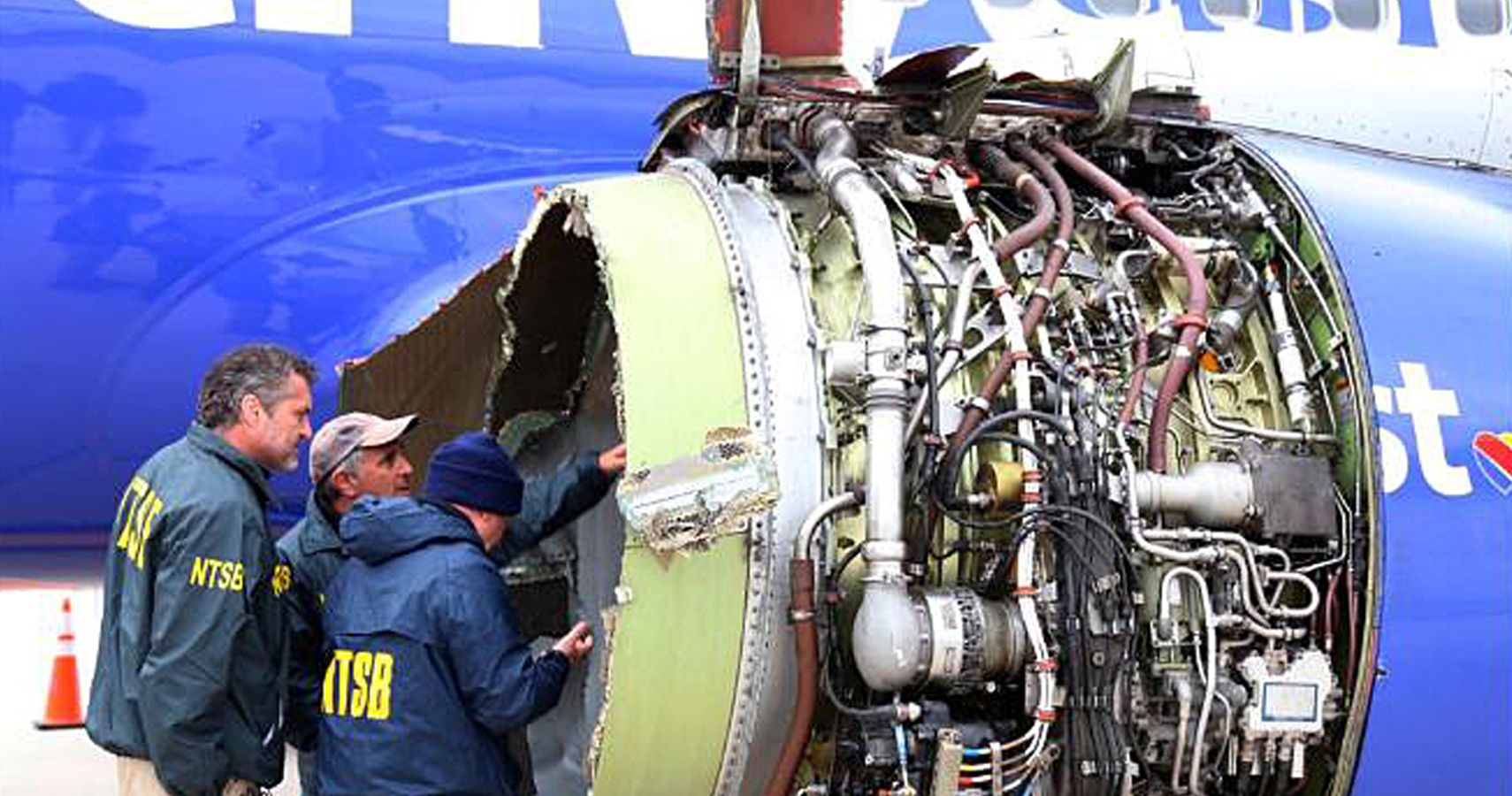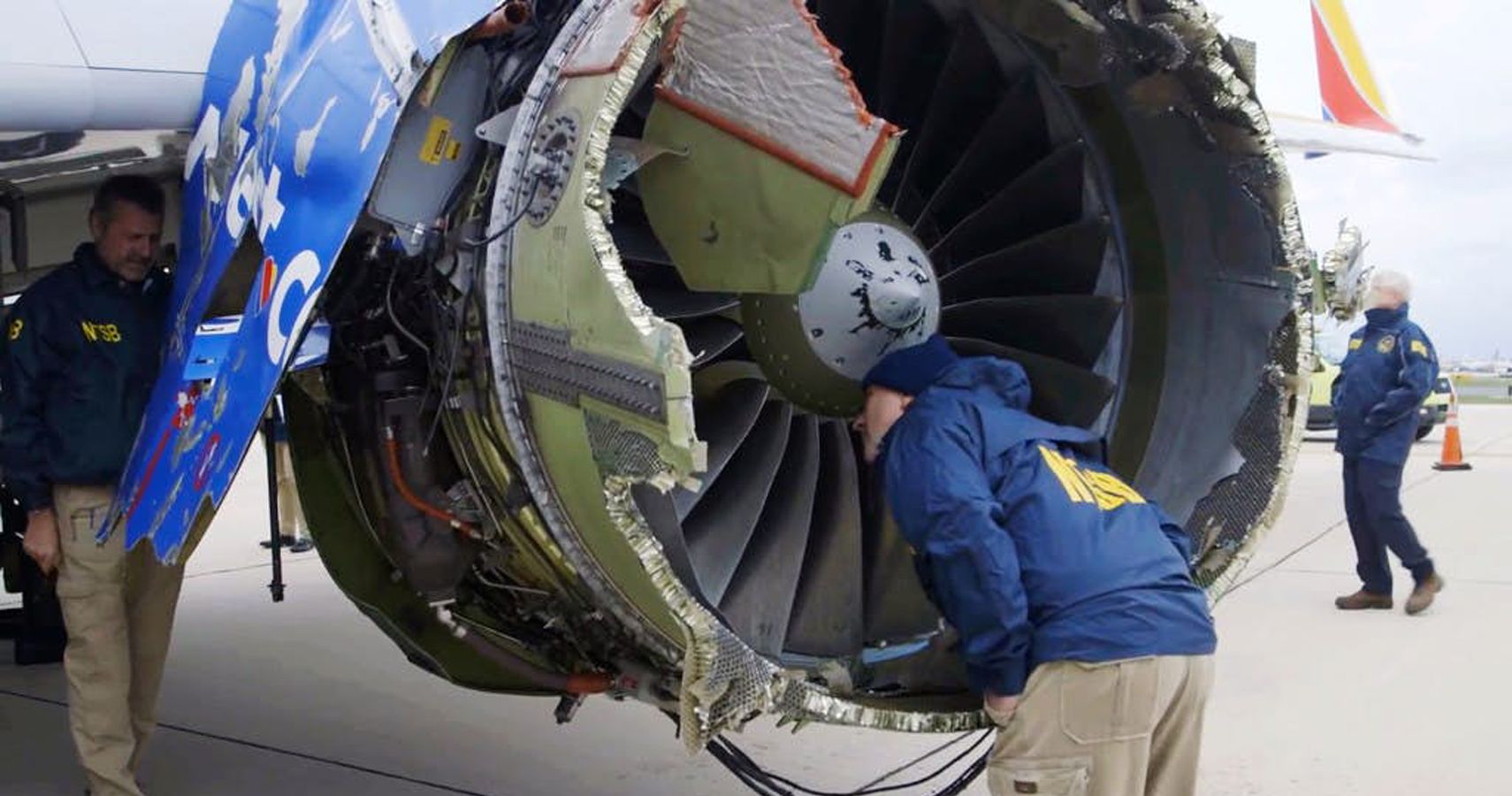In the wake of a recent tragedy involving a Southwest Airlines flight, the Federal Aviation Authority (FAA) has ordered a mandatory inspection of plane engines similar to those on the affected aircraft before September. It also issued a directive that those engines manufactured by CFM International must face further inspections.
A fan blade off a CFM567B engine on a Southwest Airlines Boeing 737 NG plane sheared off in mid-flight and smashed through a window. The incident caused a massive depressurization and killed a female passenger. The death was the first in Southwest's history and the first fatality involving a U.S. passenger airline since 1009.
A similar incident took place in 2016, although no injuries or fatalities occurred.
The FCC-sanctioned inspections will affect engines accumulating 20,000 take-off and landing cycles, with subsequent inspections of those same engines every time they've accumulated 3,000 more cycles. The order replaces a previous rule that allowed engines reach the 30,000-cycle mark before undergoing a mandatory inspection. Because metal fatigue was blamed for the April accident, the inspections will be using ultrasound to check for cracks and wear and tear on the engines.
Of the roughly 14,000 CFM56-7B engines on aircraft currently operating, the FAA order will affect some 2,500 engines out of more than 3,700 engines fitted on American planes. Some Boeing 737 planes usually used on shorter routes may not be affected.
Although the FAA ruling only affect U.S. carriers, other regulatory bodies around the world, including the U.K.'s Civil Aviation Authority, have since adopted the same inspection measures.
The April 17 disaster on board Flight 1380 en route to Dallas from New York, cost Southwest up to $100,000 in lost revenue, including dropping ticket sales and grounded flights due to engine inspections.
Southwest's problems didn't end there. On May 1, a cracked window caused a flight headed for Newark from Chicago to land in Cleveland. On May 14, four passengers suffered from ear pain while on board a plane from Denver that lost cabin pressure just before reaching its Dallas destination. Five days later, a Las Vegas flight bound for Philadelphia received pressurization warnings in the cockpit, forcing pilots to land in Indianapolis.
In response to these incidents, Southwest has been offering discounts on some fares, with prices as low as $49 a seat.


